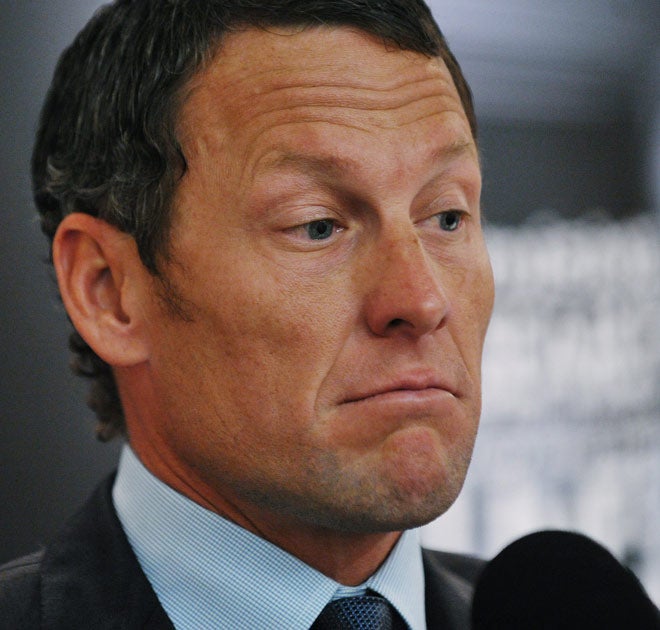Cycling: Lance Armstrong faces more doping accusations

Tyler Hamilton, who was allowed to keep his Athens Olympics gold medal despite failing a doping test, has finally confessed to cheating and accused other top cyclists including Lance Armstrong of doing the same.
In an interview to be aired by "60 Minutes" on Sunday, Hamilton ended years of denials by finally admitting to using performance-enhancing drugs, but insisted he was not alone.
The 40-year-old said he witnessed his former team mate Armstrong inject himself with a blood-booster during the 1999 Tour de France, which Armstrong won.
"(Armstrong) took what we all took... there was EPO (erythropoietin)... testosterone... a blood transfusion," Hamilton said in an excerpt released by the CBS television network.
"I saw (EPO) in his refrigerator. I saw him inject it more than one time, like we all did, like I did many, many times."
Armstrong, who won the Tour de France seven times, has always denied taking banned substances but has repeatedly had to fend off accusations despite having never failed a drugs test.
His lawyer Mark Fabiani told Reuters on Thursday that Hamilton's accusations about Armstrong were untrue.
"Hamilton is actively seeking to make money by writing a book and now he has completely changed the story he has always told before so that he could get himself on "60 Minutes" and increase his chances with publishers," Fabiani said.
"But greed and a hunger for publicity cannot change the facts: Lance Armstrong is the most tested athlete in the history of sports."
Armstrong reiterated Fabiani's view on his Twitter page.
"20+ year career. 500 drug controls worldwide, in and out of competition. Never a failed test. I rest my case," he tweeted.
World cycling's governing body the UCI said it had only just become aware of the accusation.
"UCI heard of it for the first time today in the press," spokesman Enrico Carpani said when contacted. "Only Mr. Hamilton and Mr. Armstrong are in a position to comment on it."
Hamilton said he had decided to come clean after he was subpoenaed by a grand injury currently investigating Armstrong after another of his former team mates pointed the finger at him.
In an open letter to his friends and family published by various media, Hamilton wrote: "Last summer, I received a subpoena to testify before a grand jury. Until that moment I walked into the courtroom, I hadn't told a soul.
"My testimony went on for six hours. For me, it was like the Hoover Dam breaking. I opened up; I told the whole truth, and nothing but the truth. And I felt a sense of relief I'd never felt before."
Floyd Landis, who won the 2006 Tour de France but was stripped of his victory after failing a dope test, made similar accusations against Armstrong when he finally confessed to cheating after spending four years and $1 million protesting his innocence.
No charges have been laid against Armstrong, who retired in February after one of the most successful and controversial careers in professional cycling.
The Texan was diagnosed with testicular cancer in 1996 but recovered and returned to racing, winning the Tour de France an unprecedented seven consecutive years, from 1999 to 2005.
He quit when he was at the top, but made a comeback in 2009, at 37, saying he partly missed the thrill of competition but was driven by a greater cause, to help promote cancer awareness.
Hamilton was a support rider of Armstrong's at the U.S. Postal Service team for his first three Tour de France victories.
In 2004, Hamilton won the time-trial at the Athens Olympics and was allowed to keep his medal after testing positive for blood doping because the laboratory accidently destroyed his B sample by deep freezing it.
The following year, Hamilton tested positive for a blood transfusion and was banned for two years.
In 2006 he was linked to the Spanish doping scandal dubbed "Operation Puerto" before testing positive for steroids three years later. He was given an eight-year ban after he said he had taken an over-the-counter treatment for depression.
Join our commenting forum
Join thought-provoking conversations, follow other Independent readers and see their replies
Comments
Bookmark popover
Removed from bookmarks